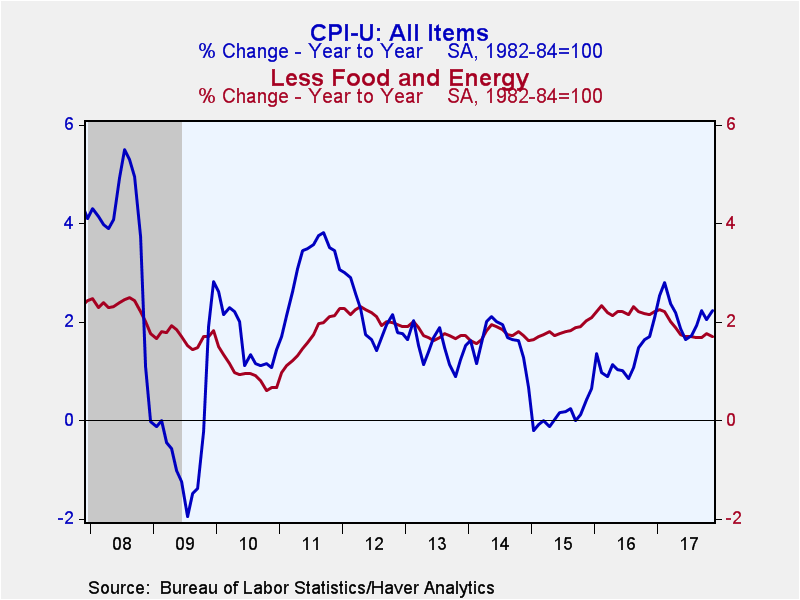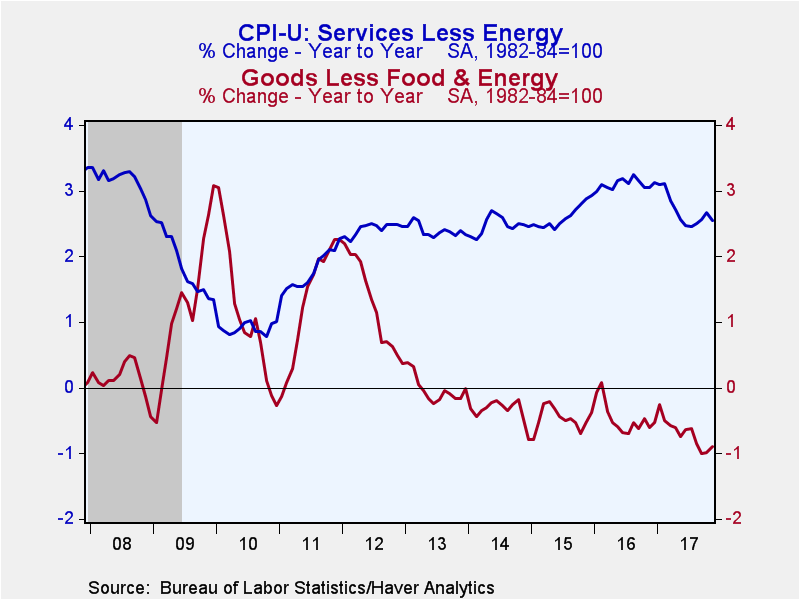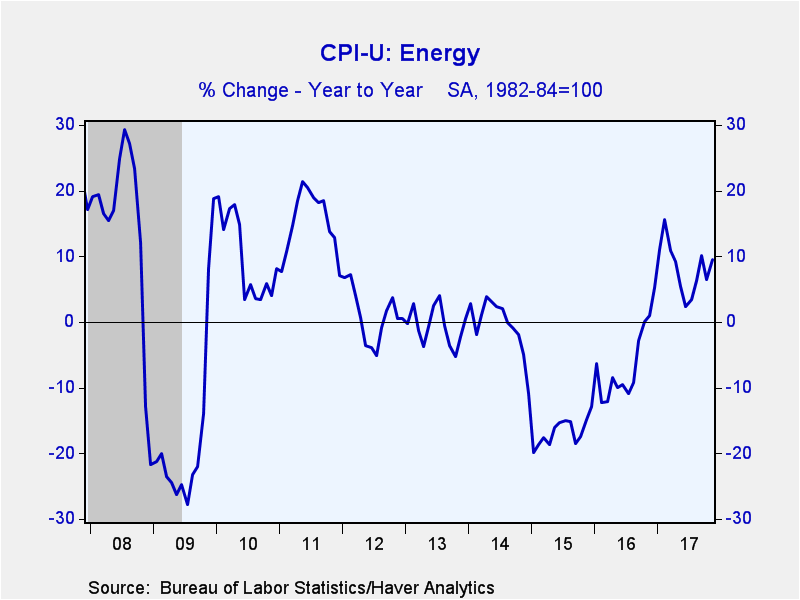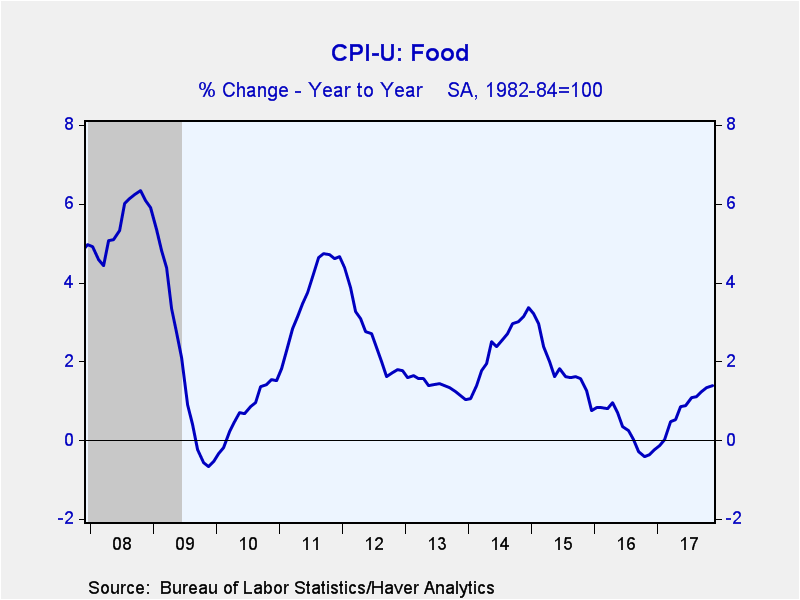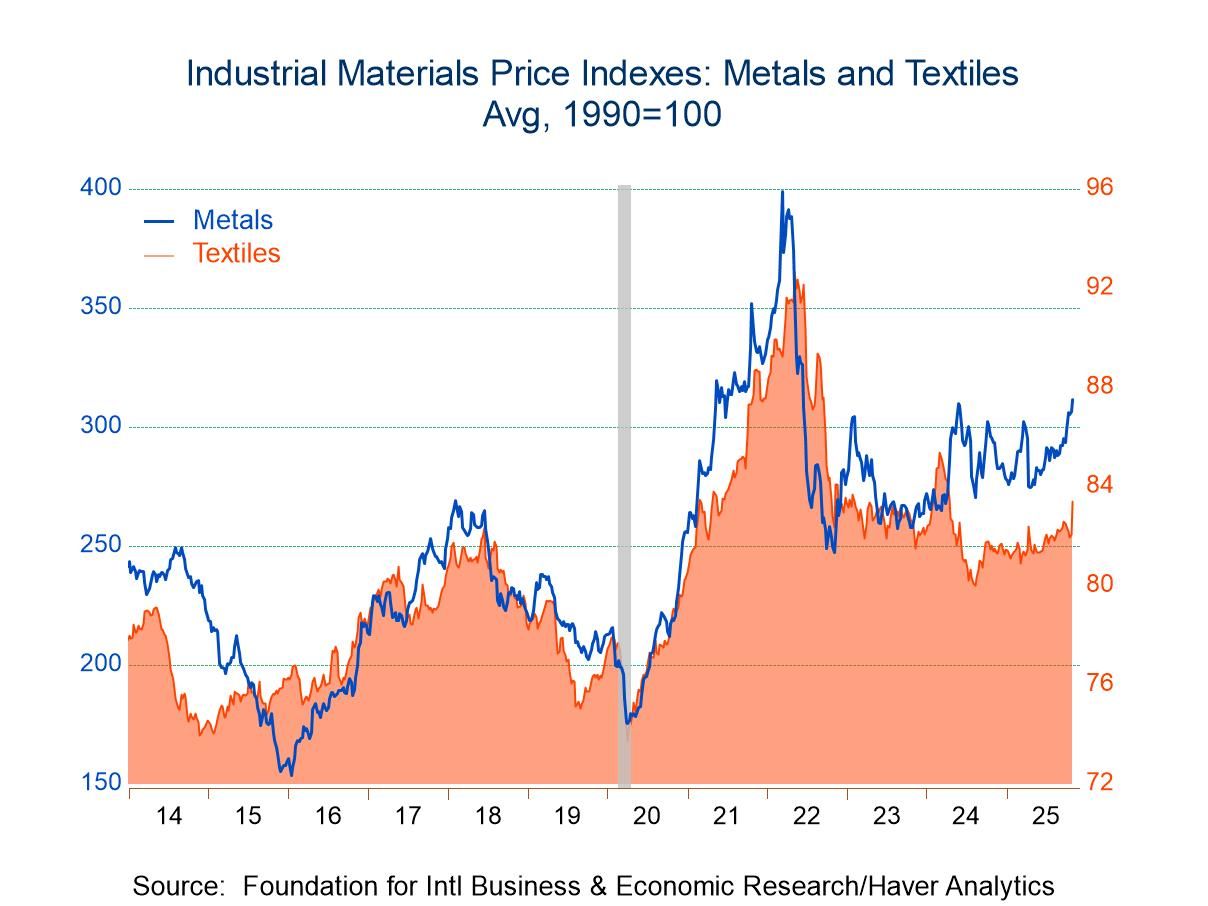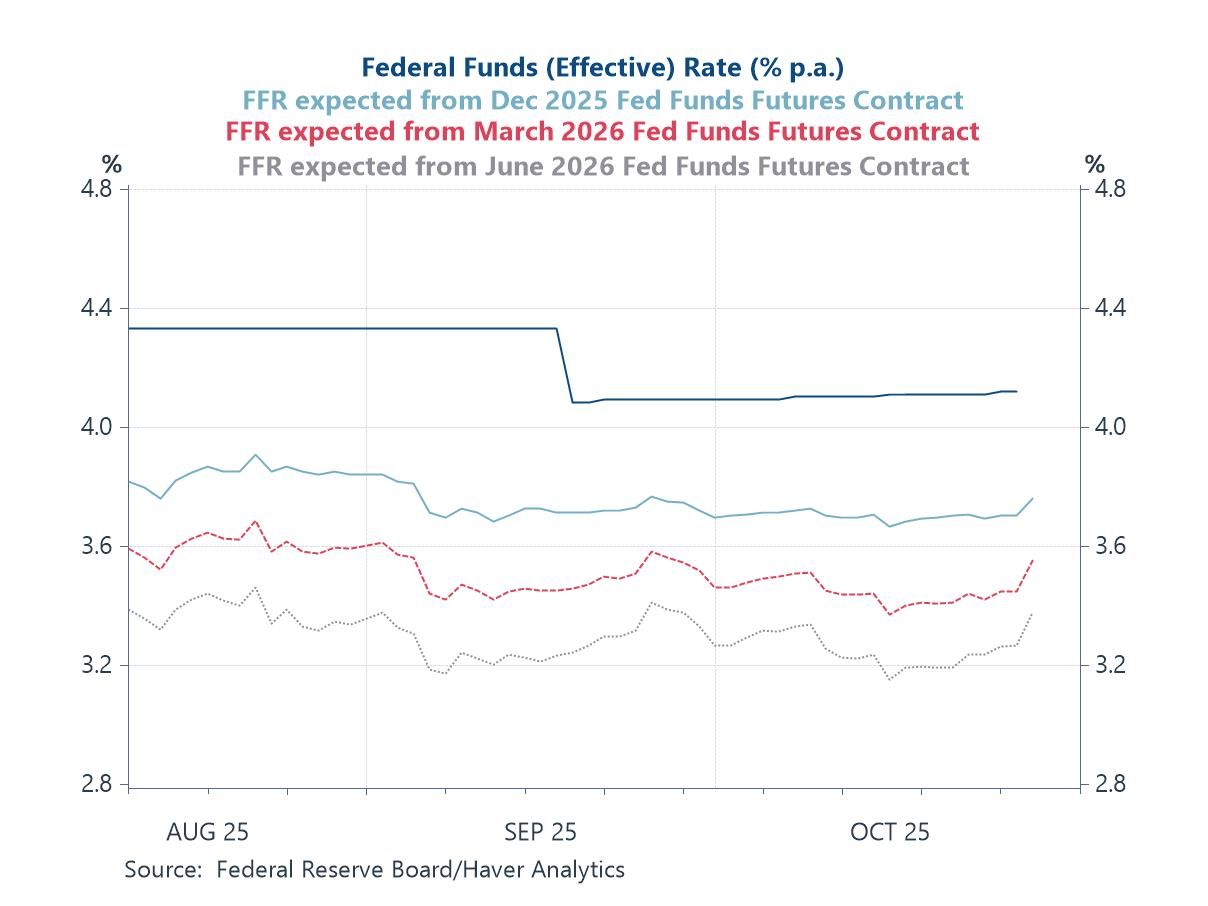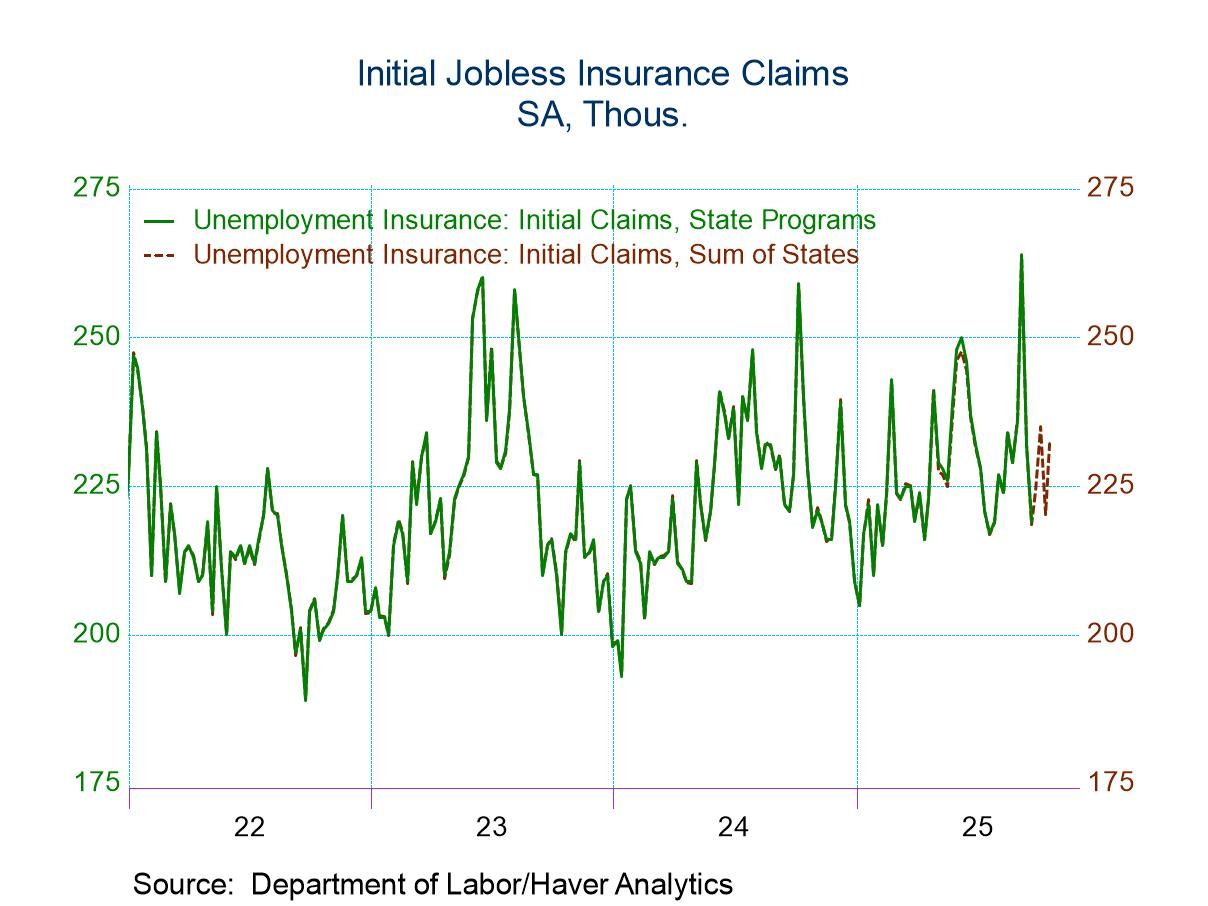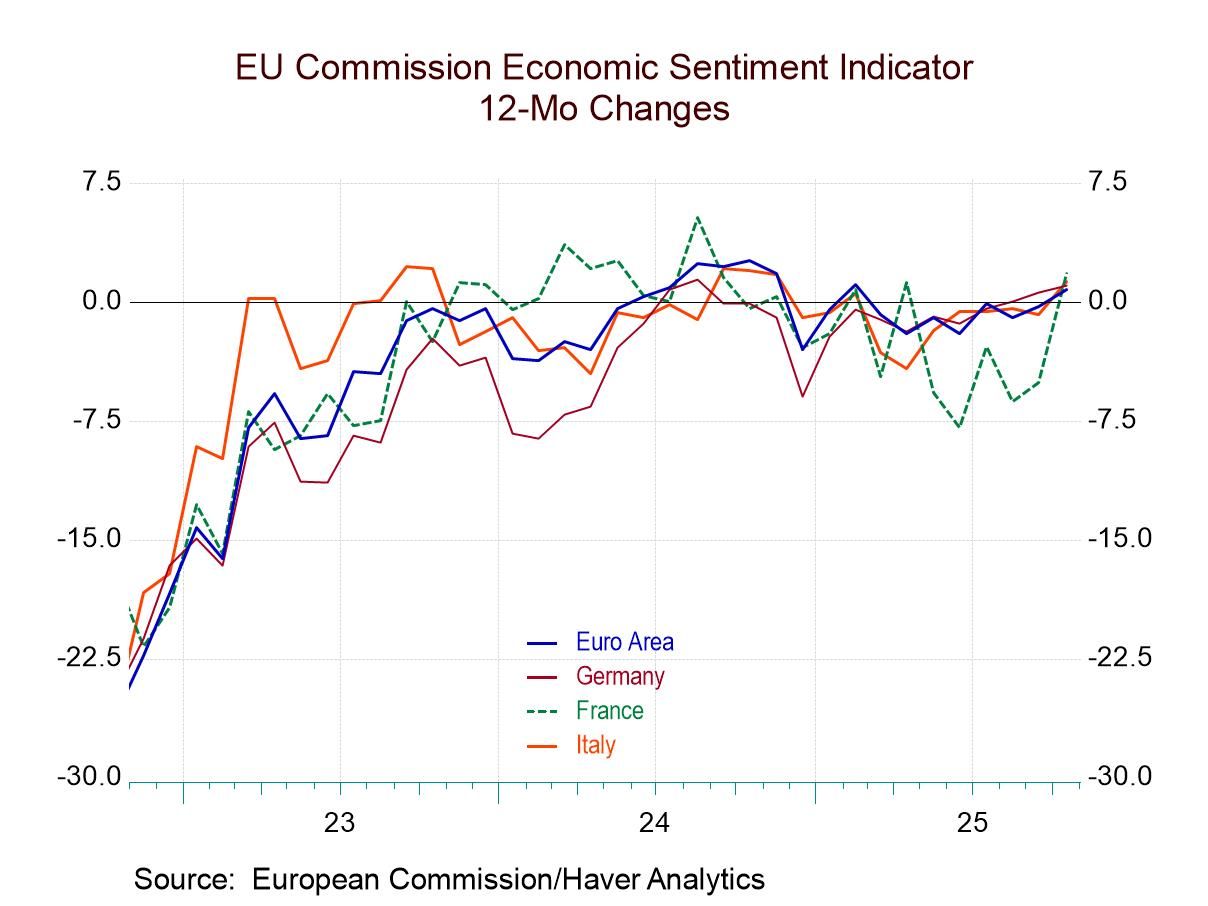 Global| Dec 13 2017
Global| Dec 13 2017U.S. CPI Strengthens With Higher Energy Prices; Core Pricing Moderates
by:Tom Moeller
|in:Economy in Brief
Summary
The Consumer Price Index increased 0.4% (2.2% y/y) during November following a 0.1% October rise. The gain matched expectations in the Action Economics Forecast Survey. Prices excluding food & energy rose 0.1% (1.7% y/y). A 0.2% gain [...]
The Consumer Price Index increased 0.4% (2.2% y/y) during November following a 0.1% October rise. The gain matched expectations in the Action Economics Forecast Survey. Prices excluding food & energy rose 0.1% (1.7% y/y). A 0.2% gain had been expected.
Lending support to pricing power last month was a 3.9% jump (9.4% y/y) in energy costs, powered by a 7.3% surge (16.5% y/y) in the price of gasoline. Fuel oil prices also were strong and posted a 5.2% jump (15.4% y/y). Natural gas costs increased 0.6% (3.6% y/y), following declines in four of the prior five months. Electricity prices improved a strengthened 0.5% (2.5% y/y) for a second straight month.
Pricing power in the goods sector eased 0.1% and the y/y increase remained depressed at -0.9%. Apparel prices declined 1.9% (-1.6% y/y), the third consecutive monthly fall. Household appliance costs were off 1.2% (-1.9% y/y), the fifth decline in six months. Recreation goods prices eased 0.5% (-3.1% y/y), the largest decline in seven months. Also weakening were household furniture & supply prices by 0.2% (-1.9% y/y), which have been falling for years. To the upside were prices for medical care goods which strengthened 0.6%, although the 1.8% y/y increase was well below the increases of the last two years. Prices for used motor vehicles jumped 1.0% (-2.1% y/y) following a 0.7% rise, while the 0.3% gain (-1.1% y/y) in new vehicle prices was only the second monthly increase this year.
Service sector prices increased 0.2% (2.5% y/y), half the rise three months ago. Shelter prices rose 0.2% (3.2% y/y) while the owner's equivalent rent of primary residence gained 0.2%. Here, the 3.1% y/y rise was below last year's peak of 3.6%. Tuition, school fees & childcare costs rose a steady 0.3% (2.4% y/y). Recreation services prices rose 0.2%, and the y/y gain strengthened to 3.5% from 1.5% in 2014. Offsetting these increases was a 1.8% decline (-0.8% y/y) in public transportation costs after a 0.6% rise. Medical care service prices slipped 0.1%, and the 1.6% y/y rise was below last year's 3.9% rise. It also approximated the weakest y/y gain since 1950.
Food prices held steady (1.4% y/y) for a second straight month. Egg pries declined 1.9% (+3.2% y/y) following a 6.7% jump. Nonalcoholic beverage prices were off 0.6% and were unchanged y/y. Fruit & vegetable prices fell 0.5% (+1.1% y/y), the third decline in four months. Meat, poultry & fish prices eased 0.2% (+1.4% y/y). Cereal & bakery product prices declined 0.2% (-0.8% y/y). Increasing were dairy product prices which rose 0.3% (0.0% y/y), reversing October's decline.
The consumer price data can be found in Haver's USECON database with additional detail in CPIDATA. The Action Economics survey figure is in the AS1REPNA database.
Where Is Everybody? The Shrinking Labor Force Participation Rate from the Federal Reserve Bank of Philadelphia is available here.
| Consumer Price Index, All Urban Consumers (% chg) | Nov | Oct | Sep | Nov Y/Y | 2016 | 2015 | 2014 |
|---|---|---|---|---|---|---|---|
| Total | 0.4 | 0.1 | 0.5 | 2.2 | 1.3 | 0.1 | 1.6 |
| Total less Food & Energy, | 0.1 | 0.2 | 0.1 | 1.7 | 2.2 | 1.8 | 1.7 |
| Goods less Food & Energy | -0.1 | 0.1 | -0.2 | -0.9 | -0.5 | -0.5 | -0.3 |
| Services less Energy | 0.2 | 0.3 | 0.2 | 2.5 | 3.1 | 2.6 | 2.5 |
| Food | 0.0 | 0.0 | 0.1 | 1.4 | 0.3 | 1.9 | 2.4 |
| Energy | 3.9 | -1.0 | 6.1 | 9.4 | -6.6 | -16.7 | -0.3 |
Tom Moeller
AuthorMore in Author Profile »Prior to joining Haver Analytics in 2000, Mr. Moeller worked as the Economist at Chancellor Capital Management from 1985 to 1999. There, he developed comprehensive economic forecasts and interpreted economic data for equity and fixed income portfolio managers. Also at Chancellor, Mr. Moeller worked as an equity analyst and was responsible for researching and rating companies in the economically sensitive automobile and housing industries for investment in Chancellor’s equity portfolio. Prior to joining Chancellor, Mr. Moeller was an Economist at Citibank from 1979 to 1984. He also analyzed pricing behavior in the metals industry for the Council on Wage and Price Stability in Washington, D.C. In 1999, Mr. Moeller received the award for most accurate forecast from the Forecasters' Club of New York. From 1990 to 1992 he was President of the New York Association for Business Economists. Mr. Moeller earned an M.B.A. in Finance from Fordham University, where he graduated in 1987. He holds a Bachelor of Arts in Economics from George Washington University.


